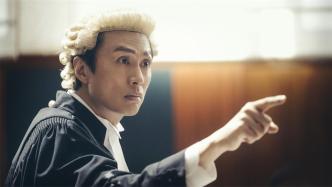
Note: This article contains spoilers
As of February 24, "The Tongue Lawyer" has exceeded 100 million Hong Kong dollars at the box office in Hong Kong, China, becoming the box office champion of Asian films in Hong Kong film history. After watching the film, I feel that this result is not surprising at all.
In fact, "The Poisonous Lawyer" has many shortcomings. The story line is relatively thin and nothing new. Fundamentally, the film is a typical "good will triumph over evil" story; it's also a bit pretentious and artificial. For example, before the final court trial, Zhong Nianhua went to see Zeng Jieer, but the interaction between the two was only a few words, and he could not dig deeper; The submissions were entertaining but, as the judge put it, "very unprofessional."
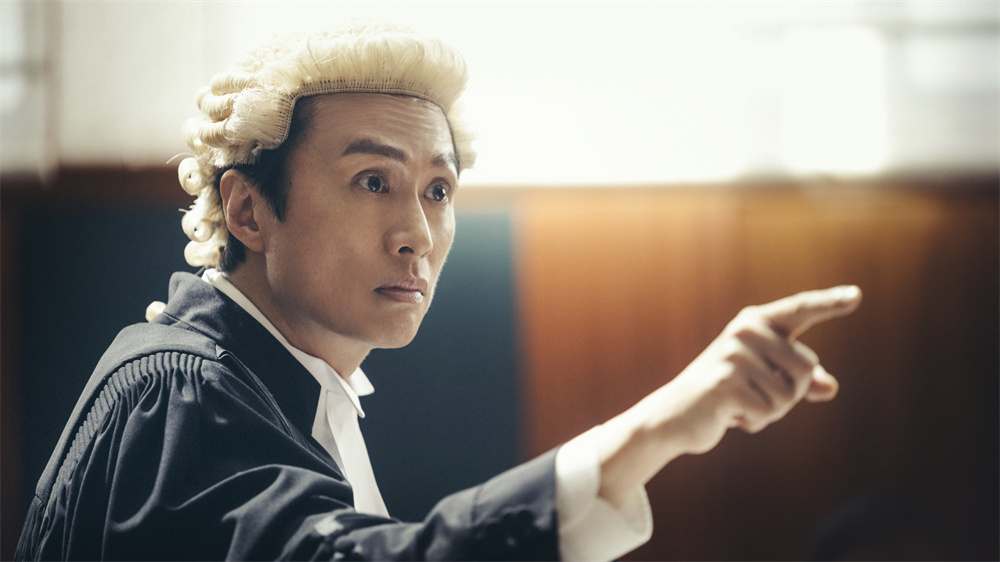
Huang Zihua as Lin Liangshui
But viewing the film with the above-mentioned perspective obviously cannot explain the phenomenon of Hong Kong audiences scrambling to go to the theater to cheer. You know, the population of Hong Kong is only 7 million, and even the creator himself didn't dare to expect such an amazing box office result for this film. The success of "The Poisonous Lawyer" does not lie in its novelty in narrative skills and thought expression, but precisely because it can be looked back in time and regain the irreplaceable characteristics and essence of Hong Kong movies.
Let’s start with one of the most interesting characters in the film, Jin Yuanshan played by Kwan Ho Tse. His "reversal" is regarded by many people as being "influenced" by Lin Liangshui, but in fact things are not that simple. Jin Yuanshan voluntarily became Lin Liangshui's strong opponent at the beginning because he couldn't understand the latter's various "little tricks" using legal rules. What he wanted to uphold was the fundamental principle of a society ruled by law.
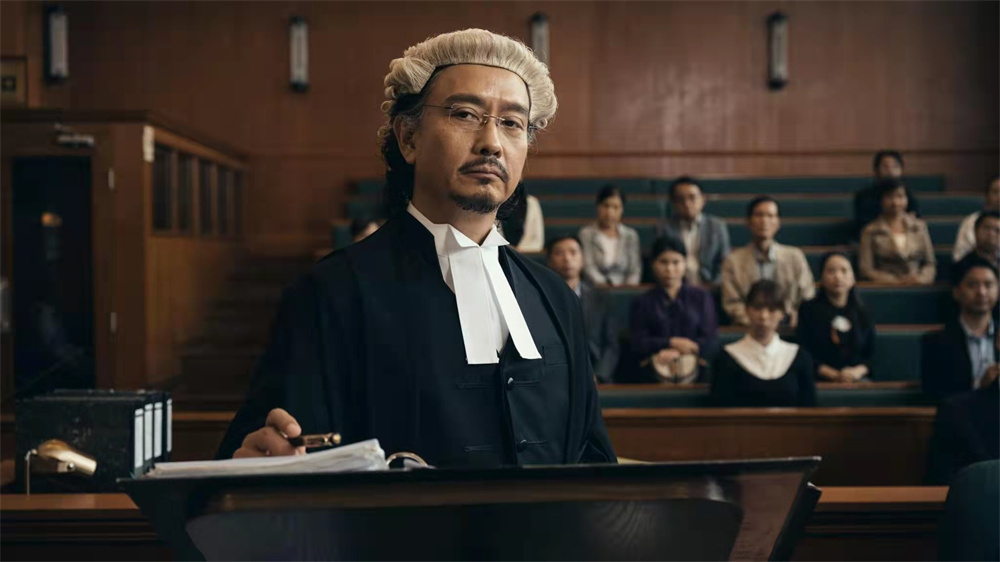
Xie Junhao as Jin Yuanshan
But with the deepening of the trial and investigation of the case, especially after Dong Weiguo played by Wang Minde came to intervene, he gradually realized that a sophisticated and professional legal system may not guarantee 100% justice and fairness, and may also become a member of the powerful class. Plaything in hand. As Lin Liangshui said in court, in addition to evidence and reasoning, there is also the truth that needs to be explored, and the common sense (human nature) that needs to be universally affirmed. That's why Jin Yuanshan told Lin Liangshui after the trial, "I don't agree with you, I just don't want to be 'taken by the sky'".
This is not an old-fashioned theme of the so-called "law and love", but the eternal motif of Hong Kong movies-the contradiction and conflict between modern rules and traditional values. The tension between the two forms the unique charm of Hong Kong movies.
When "The Wind Rises" was released not long ago, the film's director Weng Ziguang believes that the industrialized and commercialized production advantages of Hong Kong films are no longer there, and the most important thing now is to highlight the "culture" of Hong Kong films. But what exactly is the culture of Hong Kong movies?
It is very appropriate for Huang Zihua to answer this question. The ancestor of "stand-up comedy" was once a veritable box office poison, but the recent "Poisonous Lawyer" and "I Still Think You Are the Best" have hit the hearts of Hong Kong audiences hard. What's interesting is that the two characters played by him seem to have different occupations, experiences, and personalities, but the Hong Kong spirit in their bones is the same.
Lin Liangshui had an exquisite character design as soon as he appeared on the stage. Depressed in the workplace, he has a negative attitude, and even swears at the defendant who stole things to support his parents: poor people are amazing, can poor people steal? But after seeing the price of the product, he said viciously to the police, "The discounted product is only 12 yuan, why should he be fined 28 yuan?" A firm defender of the system in a society ruled by law is also a staunch supporter of traditional values.
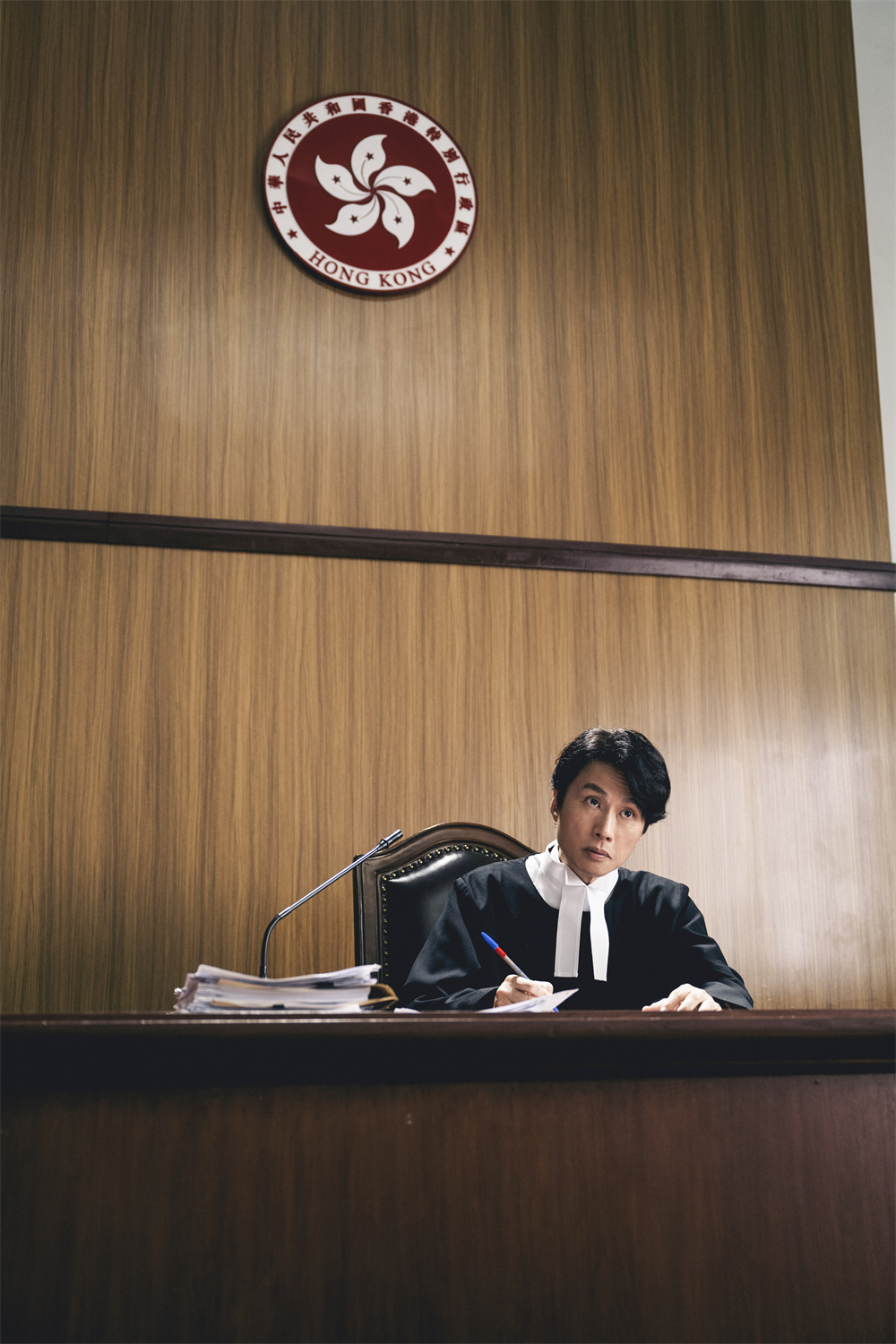
Lin Liangshui in the judge period
Lin Liangshui's ups and downs in life, from being unsuccessful (lawyer to judge), pretending to be noble (frustrated in the workplace as a judge), flattering (re-working as a lawyer, serving the rich) to officially becoming the spokesperson for the bottom of the society, it shows not only the ups and downs of his life that he found The experience of returning to the original heart is a powerful question to the modern commercial society-in this era where everything is about profit and efficiency, do we still have spiritual beliefs that we can stick to?
The answer given by Lin Liangshui is, yes, of course, that is to be a "good person" who is willing to help the disadvantaged and dare to uphold justice. The answer given by the eldest brother Chen Hong in "I Still Think You Are the Best" is that no matter how the outside world changes, the most important thing is to protect your home. The common point of the two answers is that the more powerful the modern rules are, the more the traditional values in daily life must not be forgotten, otherwise, it is possible to lose the direction of life.
From this, it is not difficult for us to understand why "Poison Tongue Lawyer" can cause such a big response in Hong Kong, China. When Lin Liangshui blatantly denounced the lawyers who were bought by powerful families, "You used to say that everyone is equal before the law, but now you say that everyone is equal before the law...", the author really heard the audience suddenly in the theater. Shouted "Okay!". It is entirely conceivable that in theaters in Hong Kong, there must be more audiences who couldn't help standing up and applauding this climactic scene.
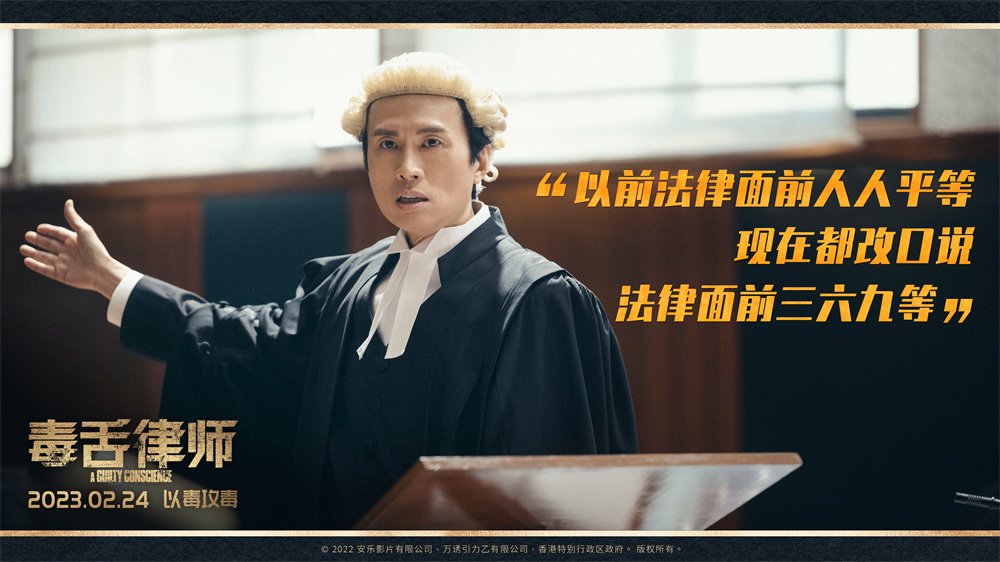
golden sentence in the film
This is the real Hong Kong movie - because it was first soaked in the process of modernization, and because it was impacted by various foreign cultures in turn, the most urgent spiritual need of the current Hong Kong citizens is to rediscover/establish the common sense (people) that is unique to the Chinese. common sense). This is also the symbolic meaning of the last scene of the movie - Lin Liangshui going to the old lady who needs legal aid without hesitation - although it seems a bit "surreal", to a considerable extent, it represents the general aspirations of Hong Kong society.
Interestingly, Lin Liangshui in "The Poisonous Lawyer" finally chose to "go back" and become a good person again; the eldest brother in "I Still Think You Are the Best" chose to sell the ancestral house left by his parents and lead his brothers The three "walked forward" to the outside world. In the conversation with the deceased mother, he also had a new understanding-whoever said what the dead person said must be right?
We must stick to it and remember the old days, but we must not become more and more burdened by traditional debts, and step by step to the point where we are complacent. It may seem contradictory, but Huang Zihua in the two films reflects the current situation of Hong Kong society; whether it is liberating human subjectivity or solving the crisis of modernism, it shows that the eternal motif of Hong Kong movies still has a lot to explore place.
If "The Wandering Earth 2" with a big production and a big scene represents the rapid development of the mainland film industry, then the low-cost "Poison Tongue Lawyer" and "I Still Think You Are the Best" let us see the infinite possibilities of Hong Kong movies in the future. The outstanding performance of young actors such as Yang Siyong and He Qihua also proves that Hong Kong movies "have successors". From this point of view, those who always bad-mouth Hong Kong movies can stop.


